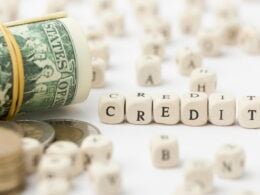Your business credit score: What you don’t know can hurt you!
Do you know what your business credit profile looks like to a lender? In addition to including several numerical “scores,” your profile also includes qualitative information to help a prospective lender evaluate your loan application. As a small business owner, your personal credit score may be a part of the creditworthiness equation, but it’s unwise to ignore your business credit profile.
First, let’s get to know the three major business credit reporting bureaus.
1. Dunn & Bradstreet (D&B)
D&B has been around since 1841 and is one of the three major business credit bureaus, and the only one that focuses exclusively on business credit. You may have heard of the PAYDEX® score, but that’s only one of the metrics D&B uses to evaluate your credit. There are five total, divided up into predictive and performance based scores.
The D&B profile is primarily a reflection of how you interact with your vendors and suppliers. If your vendors report your payment history to D&B it’s reflected in how D&B scores your profile.
Predictive-Based Scores
- Delinquency Predictor Score: This score is designed to predict whether or not a business is likely to pay their bills on time.
- Financial Stress Score: This score is designed to predict the possibility that a company will experience financial distress.
- Supplier Evaluation Risk Rating: This rating predicts the likelihood that a business might stop delivering its goods and services.
Performance-Based Scores
- PAYDEX Score: This is the 100-point score most small business owners think of when they think of D&B. This score reflects how well you’ve paid your bills and kept your financial obligations to vendors and suppliers that report to D&B.
- D&B Rating: This rating is based upon company financial statements and other public information that indicates a company’s net worth and financial health. This score is based upon company size, industry information, and other general factors.
2. Equifax
Your Equifax profile is primarily a reflection of your track record making credit card and other loan payments. Equifax takes information from the Small Business Finance Exchange (SBFE)—a group of the largest small business lenders in the United States; and where they report loan data—to create the foundation of their report.
Because this data is a direct reflection of how small businesses interact with large small business lenders, it’s one of the bureaus many banks use to evaluate your creditworthiness. In addition to a report regarding how current you are with any small business loans, part of your Equifax report will include a credit risk score that predicts the likelihood of your business going over 90 days delinquent with suppliers and a business failure score which predicts the likelihood of your business filing a bankruptcy over the next 12 months.
3. Experian
Experian’s business credit report is a reflection of how you interact with banks and other lenders as well as how you pay your vendors. They collect both trade data and bank loan data to create their report. While some businesses don’t use a lot of trade credit, and rely heavily on the bank, others don’t access capital through the bank, but rely on terms from their vendors to do business. Many businesses use both trade credit as well as business loans and don’t exclusively rely on one source of credit. Because of that, many lenders look at your Experian score.
Experian looks at the number of credit transactions, outstanding balances, payment habits, how much of your available credit you use, and the details of any current liens, judgments, or bankruptcies. Time in business and your business’ SIC codes along with the size of your business is part of your Experian 100-point business credit score.
Building a Good Business Credit Profile
All three reporting bureaus collect information available in the public record, including legal filings from local, county, and state governments, as well as information from credit card companies, collection agencies, corporate financial information, and other databases. If this information is inaccurate or unavailable, the credit bureaus will make assumptions based upon other similar businesses. Sometimes something as simple as a mistaken SIC (Standard Industrial Classification) code can negatively impact your profile.
Fortunately, all three of the bureaus are motivated to ensure the information they have on you and your business is as accurate as possible, and all have a formal dispute process. It might require a little more effort to get a dispute resolved than correcting a mistake on your personal credit report, but it’s an important part of building a good credit score.
There’s no shortcut to building a good business credit profile. If your business is new, you might consider establishing trade accounts with vendors who will report your credit history to the credit bureaus. Staples or Home Depot are good examples of vendors that offer products most small business owners need, where it’s relatively easy to establish credit, and they will report your credit history to the appropriate business credit bureaus.
In addition to making sure your profile is accurate, it’s really a matter of meeting your financial obligations and paying your suppliers and other creditors in a timely manner.
Although the need to maintain a good personal credit score will likely never go away for a small business owner, a strong business credit profile will make getting a small business loan a lot easier.






